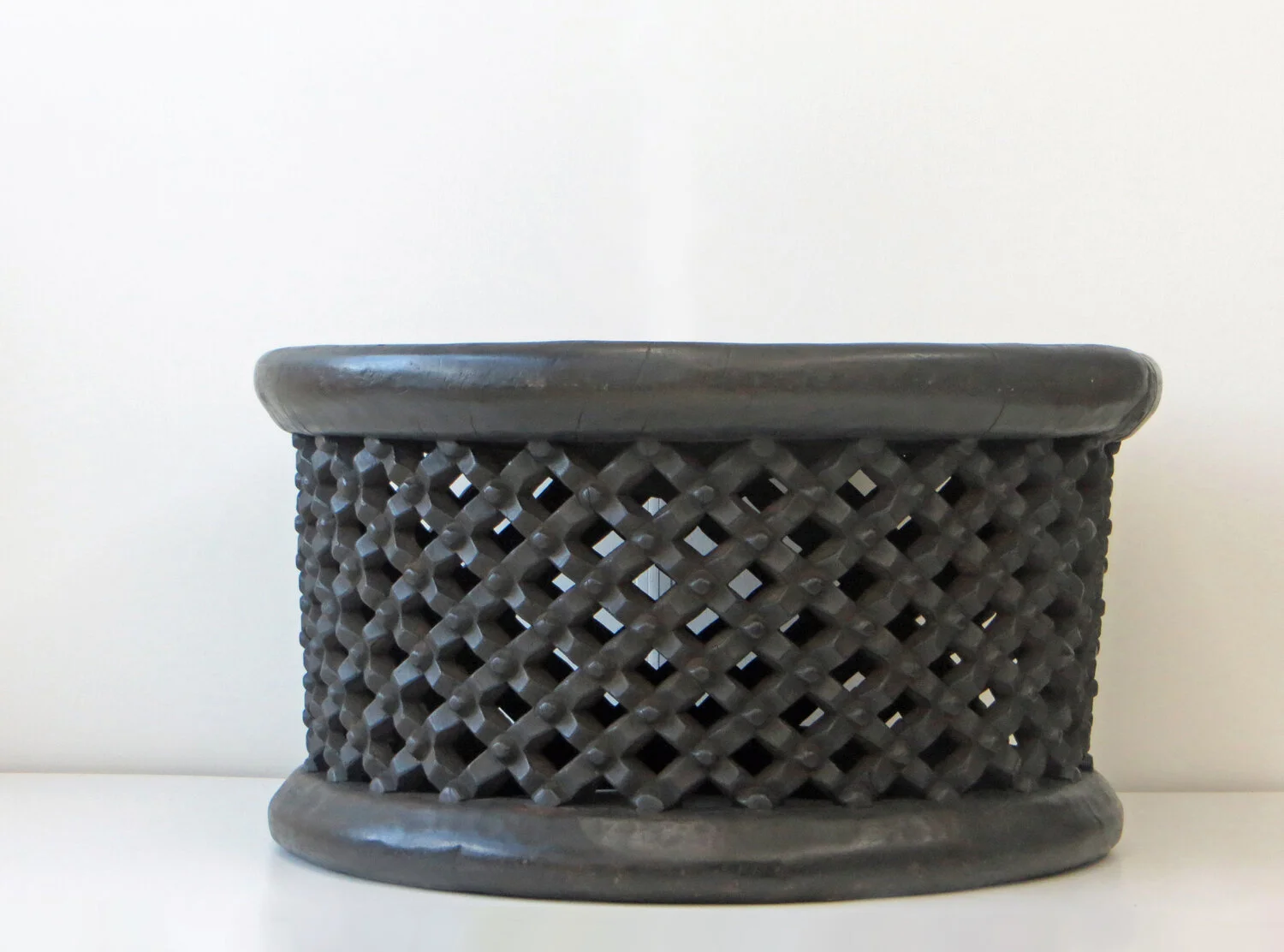Slim Spider Stool
Slim Spider Stool
GENERAL DESCRIPTION:
This piece is in extremely wonderful vintage condition – it is approximately 20 years old. Functional as well as decorative, here is a “graffi” stool from Bamenda, in the Northwest region of Cameroon. It has been carved from one single block of the Obiche tree and incorporates the intricate hand-carved webbed spider pattern typical of tribal stool from this region. . It however distinguishes itself by not having the raised "buttons" that usually punctuates the spider lattice formation.
The unique lines make it modern and architecturally eye-catching, while the sublime wood construction gives an organic feel to the piece. Due to the vintage nature of our items, we encourage our buyers to please examine photos closely and carefully read the description and measurements of the items to avoid any disappointments. There might be what seem to be some slight imperfections; most likely they will show flaws consistent with wear, age, and use, which only add character and charm to the items. Each item is described and photographed as accurately as possible.
If you have questions about a particular item or would like to order, please contact Tribal Traces. We are more than happy and willing to answer.
BACKSTORY:
The Bamileke/Graffi are native peoples living in the west and Northwest regions of Cameroon. Bamileke settlements, with their rulers/chiefs known as a fons, consider the fon to be the spiritual, political, judicial and military leader of the chiefdom and he is the main rational behind most artistic creations. Communication with the ancestral world that lies deep within the earth is an important Bamileke belief. Carvings depicting earth spiders, a creature serving as the link between the ancestors and the living is commonplace. This stunning piece features the well-known earth spider (the abstract X pattern), symbolic of divine knowledge and playing a vital role in problem solving.
Routinely, tradition and culture would have it that such major wood carved pieces have the labour shared amongst several people. A first person harvests the wood, another gives the piece it’s rough form, a carver refines the details, a sander smoothens the surface, a polisher/painter/wax-er finishes it off, and finally, a merchant sells the finished item. It goes without saying that sometimes one person may complete more than one of the steps, but working together as a community is a highly valued and social way of doing things amongst the Bamileke people. Due to the accepted practise of soaking the wood, it is in fact considered a somewhat worrying omen if NO cracks appears with time.
PRODUCT DETAILS/SPECIFICATION:
Type: Vintage Wooden stool
Dimensions: :Height: 32 cm, Diameter: 23 cm
Weight: 2.6 kg
Style: Tribal
Geographic origin: Cameroon
Date of manufacture: Late 1990s-Early 2000s
Period: Late 20th Century
Materials and techniques: Hand carved Obiche Wood
Condition: Excellent
Condition/wear/damage: Wear consistent with age and use. It shows minor cracks on rims, but generally is in very good condition. It is usual with vintage tribal pieces that some very minor, nearly imperceptible losses/imperfections exist.
You May Also Like





